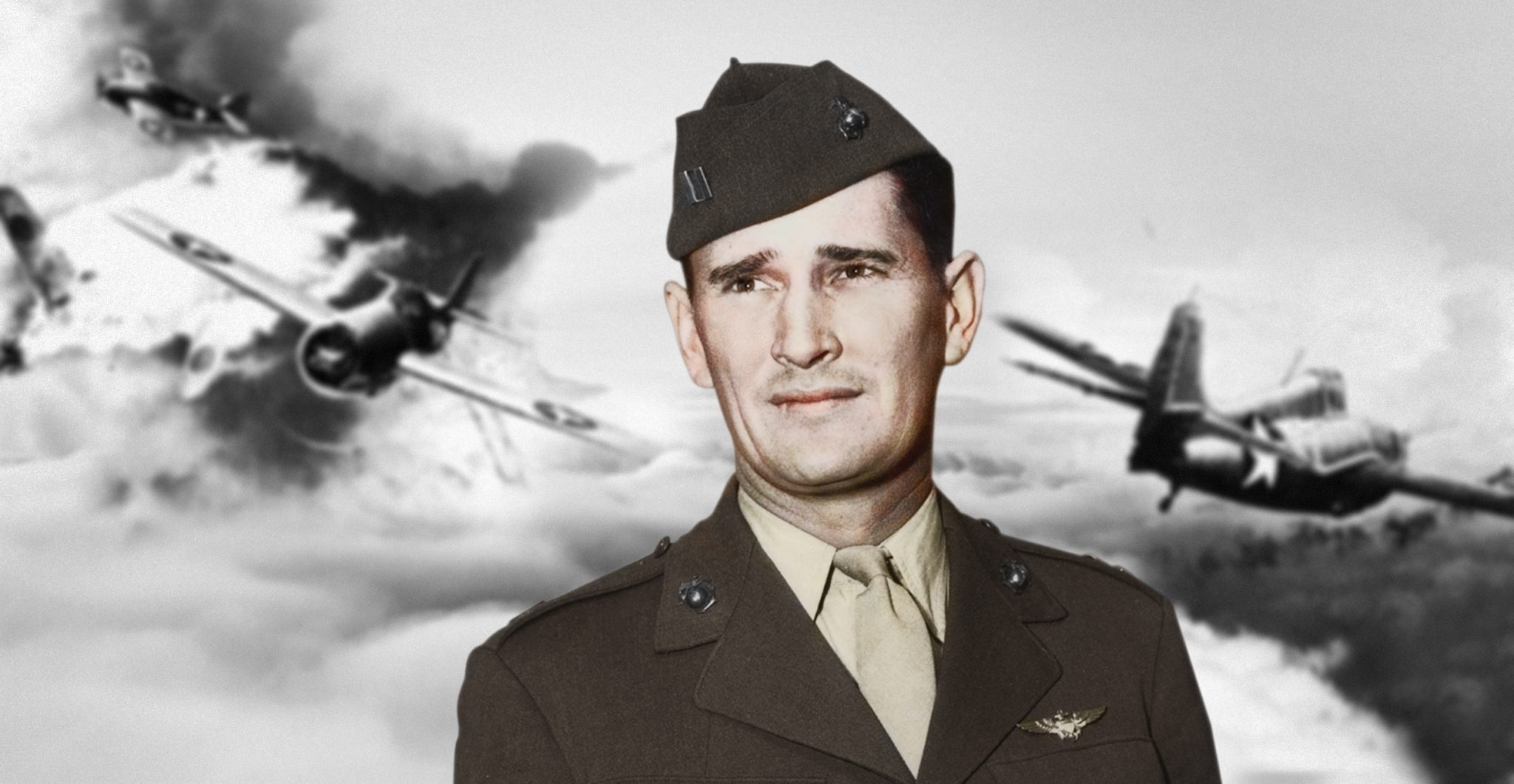World War II Ace, Joe Foss, was more than just a war hero. His remarkable life made him a man for all seasons covering war, sports, gun rights, and politics.
Born to a low-income family in a farmhouse without electricity, Foss was inspired by flying as a young man. He worked his way through school, convinced his college to start an aviation program, and hitchhiked his way to Minneapolis to join the Naval Aviation Cadet program.
He graduated from the aviation program but, at 26, was considered too old to be a fighter pilot. Unofficially he trained on the F4 Wildcats, logging over 150 flight hours until he obtained an official transfer to the Marine Corps.
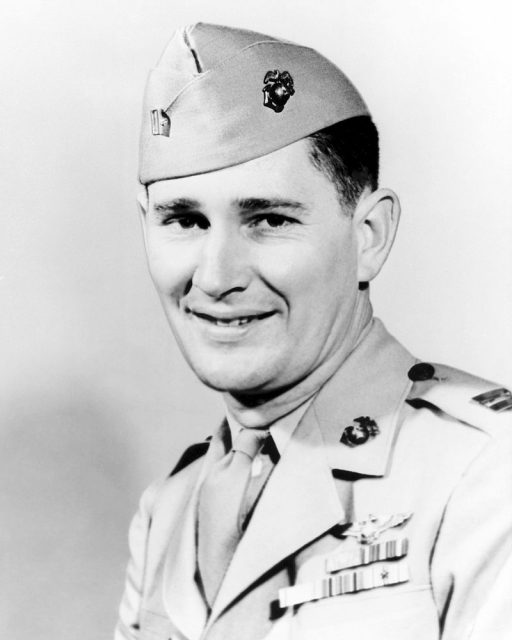
In October 1942, his unit was sent to Guadalcanal where Foss soon gained a reputation for aggressive close-in fighter tactics and uncanny gunnery skills. He shot down a Zero on his first mission but had to make a crash landing at full speed with no flaps.
He quickly became the lead pilot of what was called Foss’s Flying Circus.
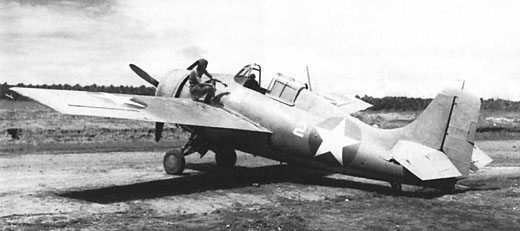
By February, the Flying Circus had shot down 72 aircraft with Foss being credited with 26 of those. This number matched the record set by the World War I Ace, Eddie Rickenbacker.
Undaunted by tremendously superior numbers, Foss successfully led a large number of escort missions as well as skillfully covering reconnaissance, bombing, and photographic planes in addition to surface craft.
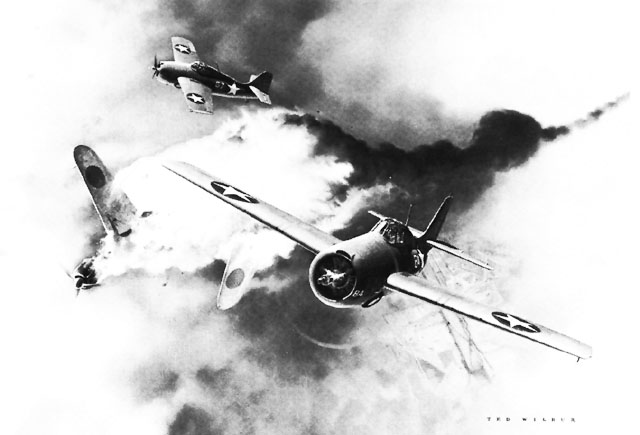
Foss’s remarkable flying skill, inspiring leadership, and indomitable fighting spirit were distinctive factors in the defense of American strategic positions on Guadalcanal for which he was awarded the Medal of Honor.
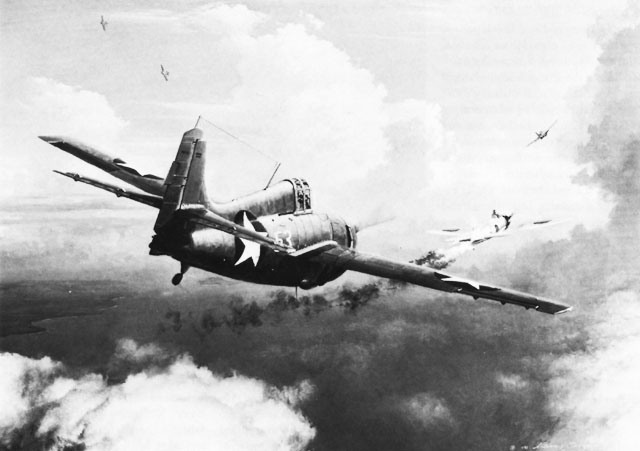
Foss flew in the Pacific until the end of the war but didn’t see combat as fierce as the fight over Guadalcanal. After the war, Foss continued flying with a private company he founded.
He also served in the state legislature and, in 1955, became South Dakota’s youngest governor at the age of 39. He unsuccessfully ran for a House and Senate seat as well.
After his time in politics, he became Commissioner of the American Football League in 1959. He negotiated multi-million dollar contract deals with national broadcast companies.
He helped the AFL merge into the National Football League and ushered in the era of modern professional football. He resigned as Commissioner to pursue a career as a hunting and fishing TV personality until the early 70s.
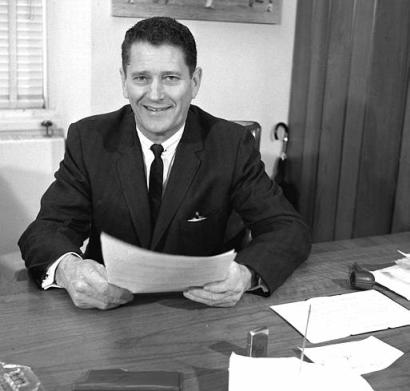
Becoming a man for all seasons, Foss served two terms as the President of the NRA. He kept a rigorous speaking schedule in support of conservative issues, particularly those relating to gun rights which he felt were being infringed.
Unfortunately, in 2002, he made the news not for his own actions, but because of what was done to him.
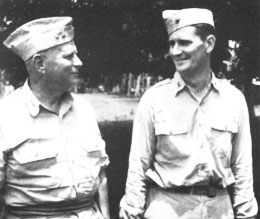
He was detained by airport security in Phoenix because his Medal of Honor set off metal detectors and airport security found a souvenir dummy round. When he should have been speaking to the NRA and a class at West Point, he was instead working to keep his Medal of Honor from being destroyed by airport security that didn’t recognize it.
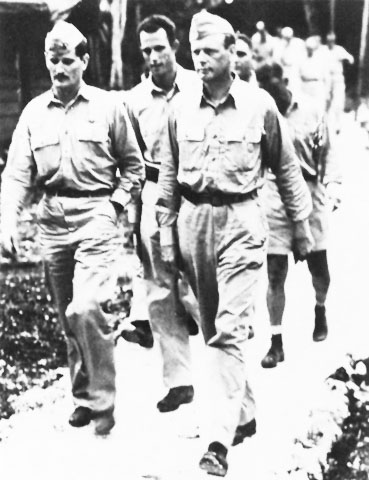
“I wasn’t upset for me… I was upset for the Medal of Honor, that they just didn’t know what it even was. It represents all of the guys who lost their lives – the guys who never came back. Everyone who put their lives on the line for their country. You’re supposed to know what the Medal of Honor is.”
(Smith, Larry. Beyond Glory: Medal of Honor Heroes in Their Own Words. New York: W. W. Norton & Company, 2004, First edition 2003, xviii.)
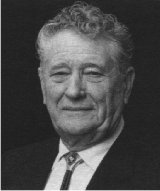
Justifiably, he joined the cause célèbre against intrusive airport security after 9/11. He suffered a stroke and died later that same year.
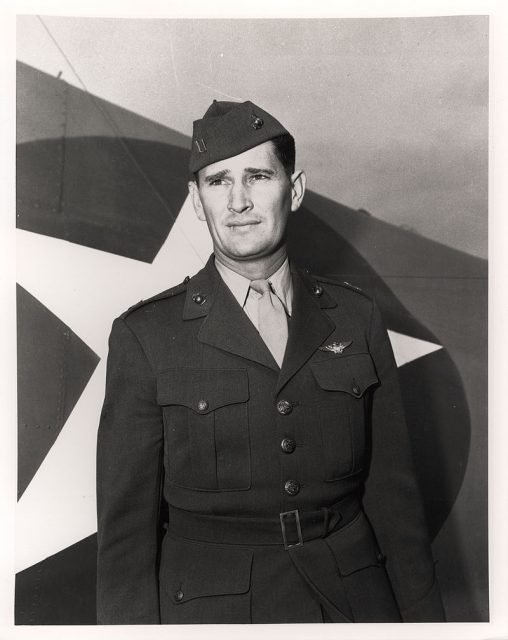
Foss’s story is a truly heroic one. He overcame extreme poverty and a relative lack of opportunity to learn how to fly. His younger brother valiantly took over the remaining farm operations so Joe Foss could attend college where he fought through military bureaucracy to become a combat pilot.
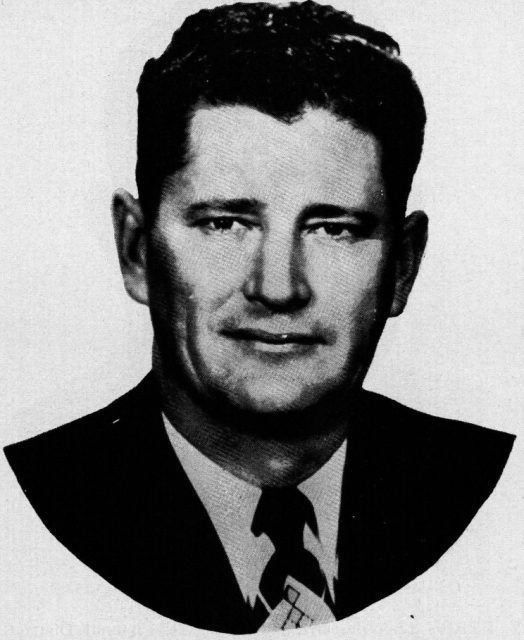
He made remarkable sacrifices early in life in pursuit of his goals, then went on to a leadership role in the NRA which was followed by his inspirational debates on airport security in the war on terror. He stood up for his principles in public and private office, and became an amazing man worth studying and remembering.
